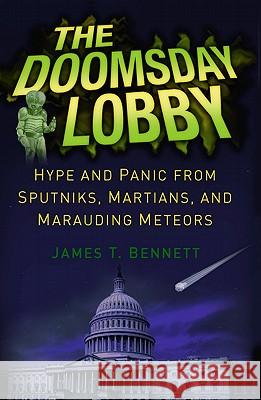The Doomsday Lobby: Hype and Panic from Sputniks, Martians, and Marauding Meteors » książka
The Doomsday Lobby: Hype and Panic from Sputniks, Martians, and Marauding Meteors
ISBN-13: 9781441966841 / Angielski / Miękka / 2010 / 200 str.
Federal patronage of science was never contemplated by the framers of the Constitution, but they did seek to "promote the Progress of Science and useful Art" by granting inventors patent rights. However, direct subvention to scientists and scientific organizations was not considered appropriate activity of the central government. In the 19th Century, American science was funded almost entirely through private investors. Since WWII, however, the federal government has become the primary patron of American science. From the race-to-space in the 1950s to current furor over global warming, Bennett traces the subtle and not-so-subtle ways in which government has co-opted scientific research and reinforced a culture in which challengers to proscribed wisdom are frozen out. Citing original documents and media reports, Bennett offers a compelling, entertaining, and thought-provoking perspective on political influence on scientific research and its implications for a democratic society. "During the Nineteenth Century, almost entirely on private funding, American science grew from practically nothing to world class. Now, however, over fifty percent of American science is funded by the federal government. Dr. Bennett traces the path, "crisis" after "crisis," by which American science became practically an arm of the federal government. His tale is a cautionary one, warning against future "crisis mongers" who would extend the government's already majority control of American science even further. His warning is a timely one, and it should be heeded." Joseph P. Martino, author of Science Funding: Politics and Porkbarrel "Bennett's latest book offers a challenging interpretation of the rise of the American federal science establishment since World War II. Focusing primarily on the growth of the space program, Bennett argues that crisis, real or imagined, is the source of state power and state funding for science. The Doomsday Lobby offers what no doubt will be viewed as a controversial contribution to the history of American science policy, and more broadly to an understanding of the role of the state in society." James D. Savage, Professor of Politics, University of Virginia, and author of Funding Science in America











